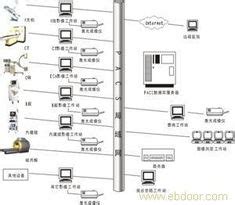pacs是什么意思
Certainly! "PACS电商" likely refers to an electronic commerce (ecommerce) platform in the Chinese market. "PACS" could stand for several things depending on the context, but it might relate to a company name, a specific product line, or an acronym for a business strategy or model. Without more context, it's a bit challenging to provide specific information, but I can offer insights into ecommerce in China and how businesses typically operate in this space.
In China, ecommerce has experienced tremendous growth over the past decade, largely driven by companies like Alibaba (owner of Taobao and Tmall) and JD.com. These platforms have revolutionized retail in China, offering a wide range of products and services to consumers and providing businesses with powerful tools to reach their target audience.
Here are some key aspects to consider regarding ecommerce in China:

1.
Market Size and Growth
: China has one of the largest ecommerce markets globally, with millions of consumers shopping online for various products and services. The market continues to grow rapidly, driven by factors such as increasing internet penetration, rising disposable incomes, and changing consumer behavior.2.
Platform Dominance
: Platforms like Taobao, Tmall, and JD.com dominate the ecommerce landscape in China. Each platform has its unique features and target audience, and businesses often need to carefully choose which platform(s) to sell on based on their target market and product category.3.
Mobile Commerce
: Mobile commerce (mcommerce) is particularly significant in China, with a large portion of online shopping done through mobile devices. This has led to the rise of mobile payment solutions like Alipay and WeChat Pay, which are deeply integrated into ecommerce platforms and widely used by consumers.4.
CrossBorder Ecommerce
: Crossborder ecommerce has also seen significant growth in China, with platforms like Alibaba's Tmall Global enabling international brands to sell directly to Chinese consumers. This presents opportunities for foreign businesses to access the Chinese market without necessarily establishing a physical presence in the country.5.
Omnichannel Retailing
: Many successful ecommerce businesses in China employ an omnichannel retailing strategy, integrating online and offline channels to provide a seamless shopping experience for consumers. This might involve setting up physical stores, popup shops, or utilizing social commerce platforms like WeChat.6.
Digital Marketing and Social Commerce
: Digital marketing plays a crucial role in ecommerce success in China. Social media platforms like WeChat, Weibo, and Douyin (TikTok) are not only used for brand promotion but also for direct sales through social commerce features.7.
Regulatory Environment
: Ecommerce in China is subject to various regulations and policies, including those related to consumer protection, data privacy, and taxation. Businesses operating in this space need to stay informed about regulatory changes and ensure compliance to avoid potential legal issues.Without specific details about "PACS电商," it's challenging to provide more targeted insights. If you have any additional context or specific questions about ecommerce in China or a particular aspect of "PACS电商," feel free to share, and I can provide more tailored information.










